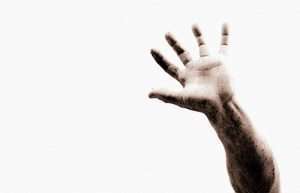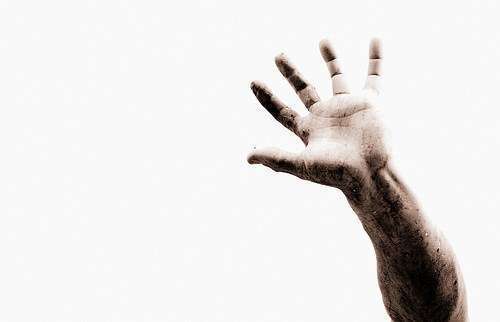 I was just a boy when I first heard the phrase, “God helps those who help themselves.” I heard it from my father, and keep in mind, I didn’t come from a religious home. Since then, I’ve heard that same phrase repeated often by both religious and non-religious people alike.
I was just a boy when I first heard the phrase, “God helps those who help themselves.” I heard it from my father, and keep in mind, I didn’t come from a religious home. Since then, I’ve heard that same phrase repeated often by both religious and non-religious people alike.
Even though that phrase sounds like it could have come from the Bible, it doesn’t. Search the Bible as carefully as you can, but you will not find those words.
If the phrase didn’t come from the Bible, where did it come from? Many think that it can be traced back to something Benjamin Franklin wrote in his Poor Richard’s Almanac in 1773: “God helps them that help themselves.” It may have started even earlier. Franklin may have read that idea in one of Aesop’s fables written 600 years before Christ. In the story of Hercules and the Waggoner, a cart gets stuck in the mud. In desperation, the man driving the cart calls out for Hercules to help him. Hercules responds by telling him: “Get up and put your shoulder to the wheel. The gods help them that help themselves.”
According to a recent George Barna survey, 68% of those who claim to be born-again Christians not only agree with that statement, “God helps those who help themselves,” but they also believe that it can be found in the Bible. Actually, there is a similar phrase found in the Quran’s Ar-Ra’d 13:1. It says that Allah will not change the conditions of a population until they change what is in themselves.
Some may argue that although the exact words, “God helps those who help themselves,” are not in the Bible, the basic idea is taught in Holy Scripture. Actually, that is just not true. In truth, the Bible teaches the exact opposite!
Let me show you what the Bible DOES teach.
A careful reading of the Bible makes it clear that God helps those who admit they CAN’T help themselves. Who does the Bible say is helpless before God? Everyone! “There is none righteous, not even one; there is none who understands, there is none who seeks for God; all have turned aside, together they have become useless; there is none who does good, there is not even one” (Romans 3:10–12).
As a rule, most religions tell us that if we do our best, then God will step in and do what we can’t do. The Bible, on the other hand, teaches that, “For all of us have become like one who is unclean, and all our righteous deeds are like a filthy garment; and all of us wither like a leaf, and our iniquities, like the wind, take us away” (Isaiah 64:6).
The Bible shows us that God actually helps those who CAN’T help themselves. “For while we were still helpless, at the right time Christ died for the ungodly” (Romans 5:6).
In fact, “He who trusts in his own heart is a fool….” (Proverbs 28:26). We can’t put some faith in our goodness, and then put some faith in God’s goodness. We either put our complete trust in the Lord’s ability to save us from our sins, or we are trusting (to some degree) in our own goodness to gain God’s help. “Thus says the Lord, ‘Cursed is the man who trusts in mankind and makes flesh his strength, and whose heart turns away from the Lord’ ” (Jeremiah 17:5).
One of the most wonderful things about Christ’s forgiveness is that He gives it all at once as a complete package. God doesn’t parcel out His favor and forgiveness a little bit at a time. It is NOT a joint effort between us and God. You can’t be partially forgiven any more than a woman can be partially pregnant. You have either accepted God’s complete forgiveness or instead, you are trusting in your own righteousness.
The Bible could not be clearer: “These whom He predestined, [fusion_builder_container hundred_percent=”yes” overflow=”visible”][fusion_builder_row][fusion_builder_column type=”1_1″ background_position=”left top” background_color=”” border_size=”” border_color=”” border_style=”solid” spacing=”yes” background_image=”” background_repeat=”no-repeat” padding=”” margin_top=”0px” margin_bottom=”0px” class=”” id=”” animation_type=”” animation_speed=”0.3″ animation_direction=”left” hide_on_mobile=”no” center_content=”no” min_height=”none”][appointed] He also called; and these whom He called, He also justified; and these whom He justified, He also glorified” (Romans 8:30). When I surrendered my heart to Christ, I was excited to learn that ALL my sin was FOREVER taken away. I don’t have to wait until I die to find out whether or not God has forgiven me because He says, “Therefore there is now no condemnation for those who are in Christ Jesus” (Romans 8:1).[/fusion_builder_column][/fusion_builder_row][/fusion_builder_container]

